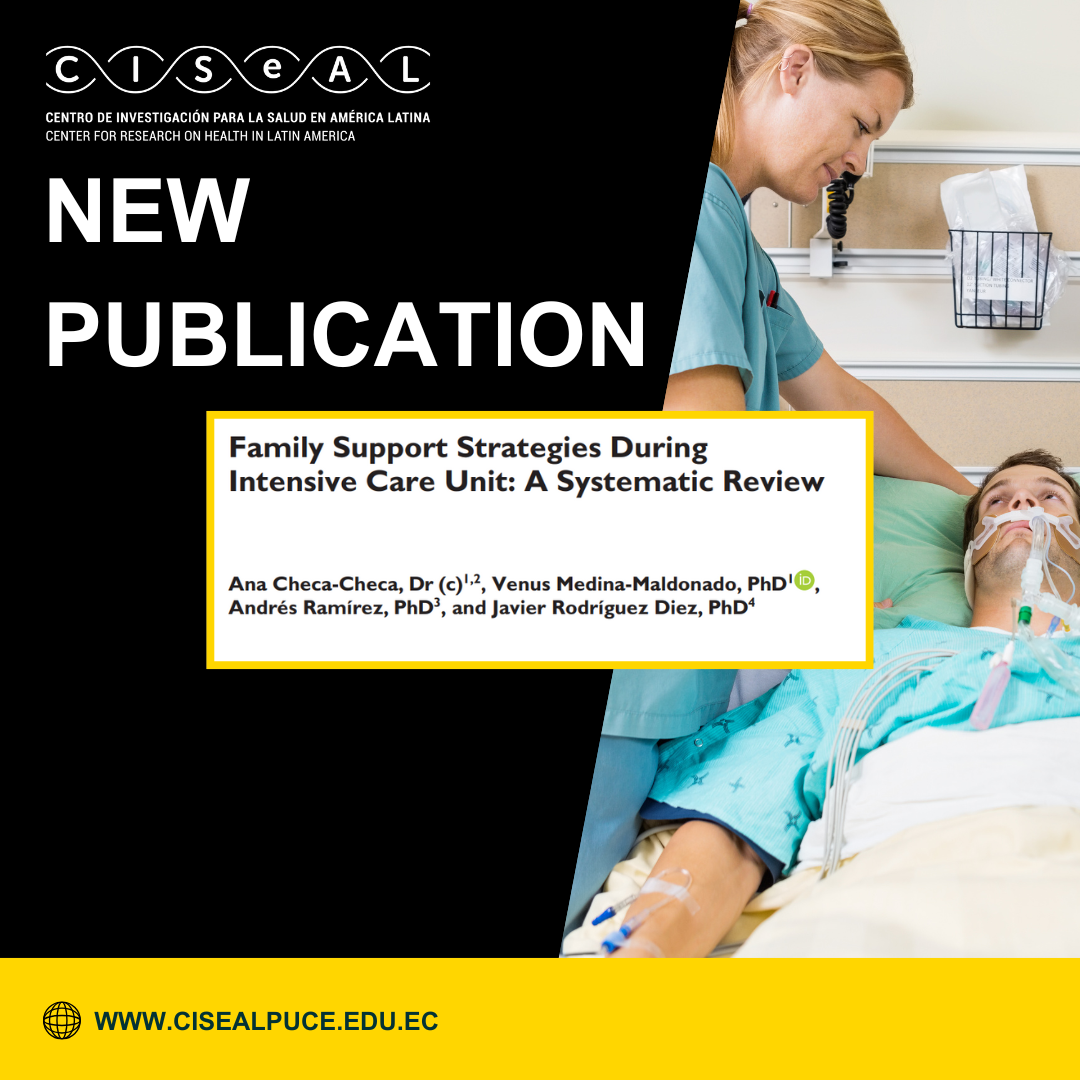 This study, with the participation of CISeAL researcher Venus Medina, systematically analyzes support strategies for families of critically ill patients admitted to intensive care units (ICUs), focusing on the effectiveness of nursing interventions compared to standard care. The review covered articles published between 2015 and 2025 in databases such as PubMed, Scopus, CINAHL, SciELO, and Web of Science, following the PRISMA 2020 guidelines, and applied quality assessment tools such as the Johns Hopkins model and the ROB 2 instrument. Eighteen studies with diverse samples, although predominantly female, were included. These studies evaluated interventions aimed at communication, decision-making, and strengthening the emotional bond between family members and ICU patients. Strategies ranged from in-person programs—such as structured communication during rounds, open visitation policies, and family participation in care—to technology-mediated approaches that facilitated guidance and decision-making.
This study, with the participation of CISeAL researcher Venus Medina, systematically analyzes support strategies for families of critically ill patients admitted to intensive care units (ICUs), focusing on the effectiveness of nursing interventions compared to standard care. The review covered articles published between 2015 and 2025 in databases such as PubMed, Scopus, CINAHL, SciELO, and Web of Science, following the PRISMA 2020 guidelines, and applied quality assessment tools such as the Johns Hopkins model and the ROB 2 instrument. Eighteen studies with diverse samples, although predominantly female, were included. These studies evaluated interventions aimed at communication, decision-making, and strengthening the emotional bond between family members and ICU patients. Strategies ranged from in-person programs—such as structured communication during rounds, open visitation policies, and family participation in care—to technology-mediated approaches that facilitated guidance and decision-making.
The results show that these interventions increased family satisfaction and reduced psychological distress, highlighting the central role of nursing in promoting empathetic, clear, and continuous communication, guiding families through highly complex clinical processes. However, heterogeneity in intervention design, small sample sizes, and moderate risk of bias in some studies limit the generalizability of the findings. The review underscores the importance of humanized, family-centered care (PFCC) as an essential component of quality ICU care, while also identifying gaps in the literature regarding the integration of educational, emotional, and technological strategies in a combined manner. The development of mixed-methods research and higher-quality controlled trials is recommended to strengthen the evidence and guide the implementation of evidence-based practices that improve the family experience in intensive care.
We invite you to read the full article at:



